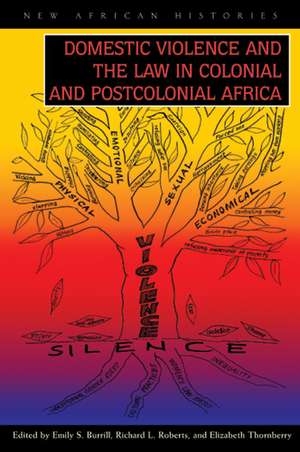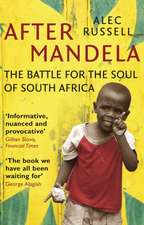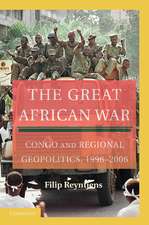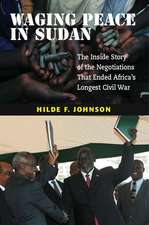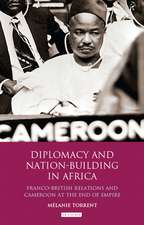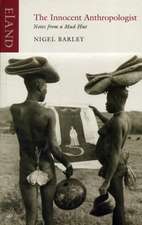Domestic Violence and the Law in Colonial and Postcolonial Africa: New African Histories
Editat de Emily S. Burrill, Richard L. Roberts, Elizabeth Thornberryen Limba Engleză Paperback – 14 aug 2010
Domestic Violence and the Law in Colonial and Postcolonial Africa reveals the ways in which domestic space and domestic relationships take on different meanings in African contexts that extend the boundaries of family obligation, kinship, and dependency. The term domestic violence encompasses kin-based violence, marriage-based violence, gender-based violence, as well as violence between patrons and clients who shared the same domestic space. As a lived experience and as a social and historical unit of analysis, domestic violence in colonial and postcolonial Africa is complex.
Using evidence drawn from Sub-saharan Africa, the chapters explore the range of domestic violence in Africa’s colonial past and its present, including taxation and the insertion of the household into the broader structure of colonial domination.
African histories of domestic violence demand that scholars and activists refine the terms and analyses and pay attention to the historical legacies of contemporary problems. This collection brings into conversation historical, anthropological, legal, and activist perspectives on domestic violence in Africa and fosters a deeper understanding of the problem of domestic violence, the limits of international human rights conventions, and local and regional efforts to address the issue.
Using evidence drawn from Sub-saharan Africa, the chapters explore the range of domestic violence in Africa’s colonial past and its present, including taxation and the insertion of the household into the broader structure of colonial domination.
African histories of domestic violence demand that scholars and activists refine the terms and analyses and pay attention to the historical legacies of contemporary problems. This collection brings into conversation historical, anthropological, legal, and activist perspectives on domestic violence in Africa and fosters a deeper understanding of the problem of domestic violence, the limits of international human rights conventions, and local and regional efforts to address the issue.
| Toate formatele și edițiile | Preț | Express |
|---|---|---|
| Paperback (1) | 273.85 lei 6-8 săpt. | |
| Ohio University Press – 14 aug 2010 | 273.85 lei 6-8 săpt. | |
| Hardback (1) | 479.33 lei 6-8 săpt. | |
| Ohio University Press – 14 aug 2010 | 479.33 lei 6-8 săpt. |
Din seria New African Histories
-
 Preț: 251.87 lei
Preț: 251.87 lei - 19%
 Preț: 479.49 lei
Preț: 479.49 lei -
 Preț: 230.83 lei
Preț: 230.83 lei -
 Preț: 223.97 lei
Preț: 223.97 lei -
 Preț: 276.18 lei
Preț: 276.18 lei -
 Preț: 231.50 lei
Preț: 231.50 lei -
 Preț: 228.77 lei
Preț: 228.77 lei -
 Preț: 223.97 lei
Preț: 223.97 lei -
 Preț: 251.87 lei
Preț: 251.87 lei -
 Preț: 223.58 lei
Preț: 223.58 lei -
 Preț: 308.25 lei
Preț: 308.25 lei -
 Preț: 256.80 lei
Preț: 256.80 lei -
 Preț: 215.49 lei
Preț: 215.49 lei -
 Preț: 213.37 lei
Preț: 213.37 lei -
 Preț: 251.71 lei
Preț: 251.71 lei -
 Preț: 230.41 lei
Preț: 230.41 lei -
 Preț: 226.37 lei
Preț: 226.37 lei - 18%
 Preț: 187.01 lei
Preț: 187.01 lei -
 Preț: 230.41 lei
Preț: 230.41 lei -
 Preț: 252.70 lei
Preț: 252.70 lei -
 Preț: 278.09 lei
Preț: 278.09 lei -
 Preț: 280.34 lei
Preț: 280.34 lei -
 Preț: 294.80 lei
Preț: 294.80 lei -
 Preț: 275.98 lei
Preț: 275.98 lei -
 Preț: 293.04 lei
Preț: 293.04 lei -
 Preț: 272.32 lei
Preț: 272.32 lei -
 Preț: 292.83 lei
Preț: 292.83 lei -
 Preț: 258.32 lei
Preț: 258.32 lei -
 Preț: 274.27 lei
Preț: 274.27 lei -
 Preț: 280.05 lei
Preț: 280.05 lei - 23%
 Preț: 480.51 lei
Preț: 480.51 lei - 23%
 Preț: 477.86 lei
Preț: 477.86 lei -
 Preț: 257.94 lei
Preț: 257.94 lei - 23%
 Preț: 473.41 lei
Preț: 473.41 lei -
 Preț: 271.39 lei
Preț: 271.39 lei -
 Preț: 260.45 lei
Preț: 260.45 lei -
 Preț: 275.98 lei
Preț: 275.98 lei -
 Preț: 274.27 lei
Preț: 274.27 lei - 23%
 Preț: 472.21 lei
Preț: 472.21 lei - 23%
 Preț: 476.82 lei
Preț: 476.82 lei - 23%
 Preț: 475.64 lei
Preț: 475.64 lei
Preț: 273.85 lei
Nou
Puncte Express: 411
Preț estimativ în valută:
52.40€ • 54.86$ • 43.36£
52.40€ • 54.86$ • 43.36£
Carte tipărită la comandă
Livrare economică 05-19 aprilie
Preluare comenzi: 021 569.72.76
Specificații
ISBN-13: 9780821419298
ISBN-10: 0821419293
Pagini: 336
Dimensiuni: 152 x 229 x 23 mm
Greutate: 0.38 kg
Ediția:1
Editura: Ohio University Press
Colecția Ohio University Press
Seria New African Histories
ISBN-10: 0821419293
Pagini: 336
Dimensiuni: 152 x 229 x 23 mm
Greutate: 0.38 kg
Ediția:1
Editura: Ohio University Press
Colecția Ohio University Press
Seria New African Histories
Recenzii
“This is a fascinating and extensively researched exploration of a range of forms of gender-based violence that combines historical, anthropological, and legal perspectives. One of its strengths is the way it juxtaposes studies of the legal regulation of violence in the colonial era with that of the postcolonial human rights era.”—Sally Engle Merry, author of Human Rights and Gender Violence: Translating International Law into Local Justice
“… (T)his collection is an important opening call for future research into the topic of domestic violence and African family/household histories.… This book will not only be widely appealing to scholars, but could also serve as a useful supplementary text in a number of undergraduate courses.”—International Journal of African Historical Studies
“For several decades, scholars have effectively mined trial transcripts and other legal sources for innovative perspectives in social history. Despite subjective testimony and other limitations, such documents contain direct evidence from otherwise voiceless, obscure people. This book continues that trend, revealing the experiences of targets and perpetrators of intimate, private violence.... Summing Up: Recommended.”—CHOICE
Notă biografică
Emily S. Burrill is an associate professor in the Department of Women’s and Gender Studies at the University of North Carolina at Chapel Hill and coeditor of Domestic Violence and the Law in Colonial and Postcolonial Africa.
Richard L. Roberts directs the Center for African Studies at Stanford University. His books include Trafficking in Slavery’s Wake: The Experience of Women and Children in Africa, edited with Benjamin N. Lawrance.
Elizabeth Thornberry is a doctoral candidate in African history at Stanford University.
Richard L. Roberts directs the Center for African Studies at Stanford University. His books include Trafficking in Slavery’s Wake: The Experience of Women and Children in Africa, edited with Benjamin N. Lawrance.
Elizabeth Thornberry is a doctoral candidate in African history at Stanford University.
Descriere
Domestic Violence and the Law in Colonial and Postcolonial Africa reveals the ways in which domestic space and domestic relationships take on different meanings in African contexts that extend the boundaries of family obligation, kinship, and dependency.
